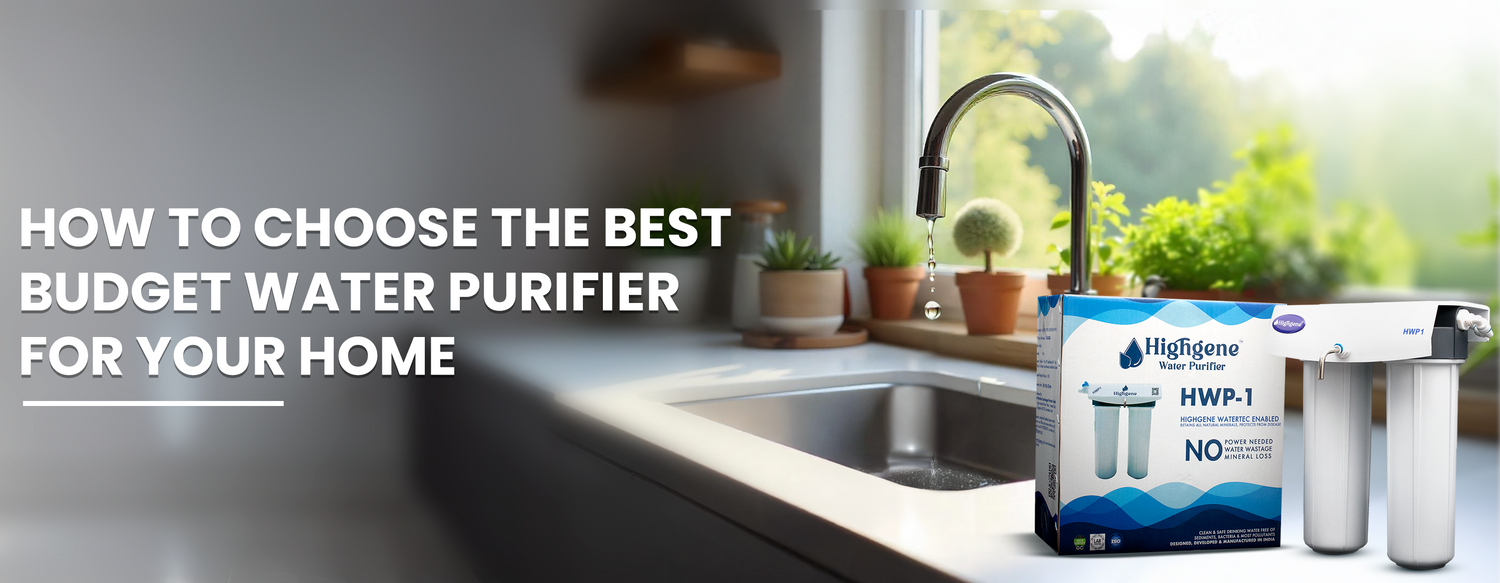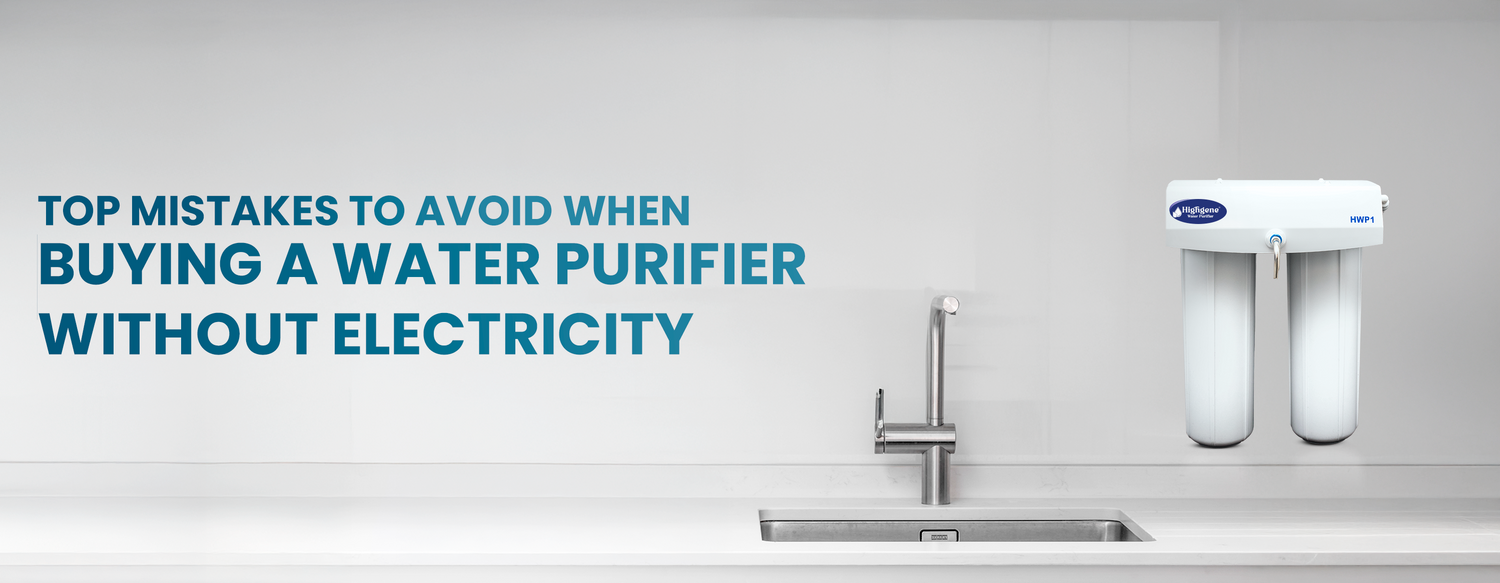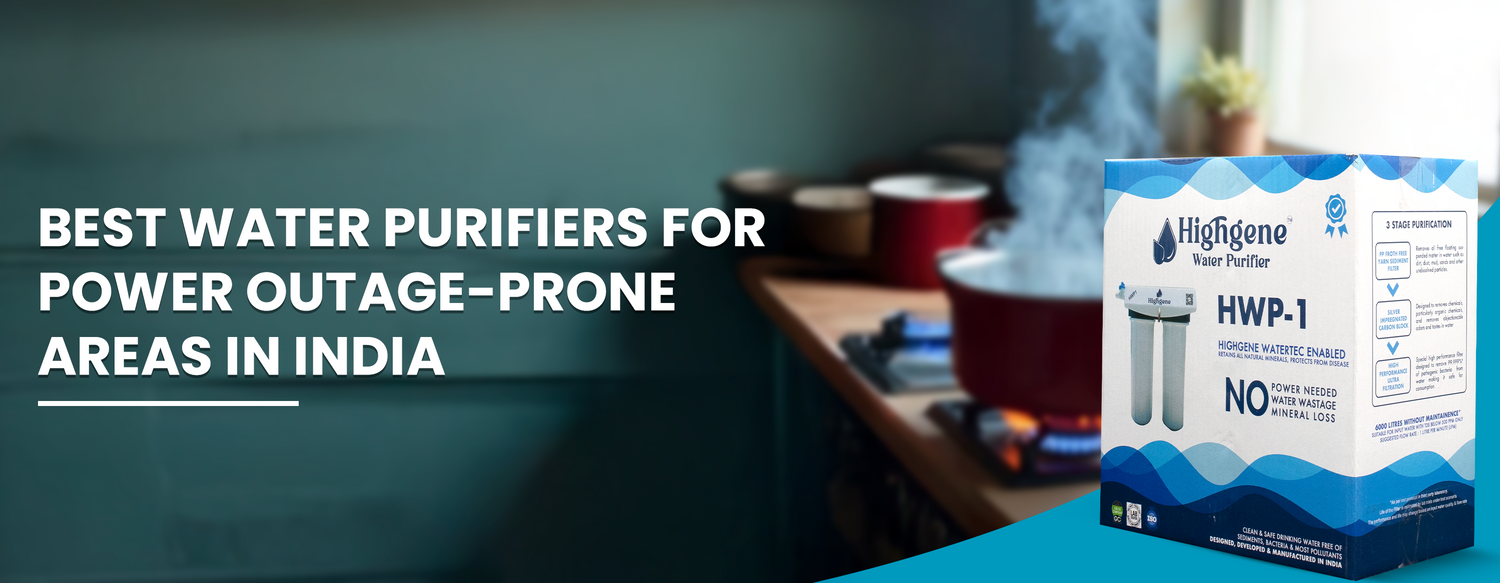Why Safe Drinking Water is Crucial
A mother fills a glass with water, hoping her child will quench his thirst after a hard day in the sun. She is unaware that the very water meant to nurture her child may be hiding an undetectable danger that could land them in the hospital. Families are increasingly being affected by cholera, a disease that many people thought had been consigned to the past. THE IMPLICATIONS when over 11,000 cases were reported in India by the World Health Organization in 2024.
Families that obtain their water from overhead tanks in cities and handpumps in rural regions unwittingly expose themselves to health risks caused by microorganisms. The National Center for Disease Control has frequently identified marked faecal contamination of drinking water supplies as a persistent public health issue in India.
Having access to clean drinking water helps prevent the majority of these illnesses. There are answers; they're not complicated, but they do the trick. A household water purifier is trusted to shield many households against unsafe water. In a region where power cuts are a common matter and incomes are tight, a non electric water purifier or any other purifying device becomes a necessity, possibly even a lifesaver. Simply by making sure the water in their glass is clear and, in fact, safe.
Get to Know about this Disease Cholera
Usually, it starts with a harmless stomach sickness. An older relative feels weak after a hot afternoon, or a child's tummy hurts after eating. After that, the symptoms—watery diarrhoea, vomiting, and lightheadedness—get worse over the course of several hours. In the heat, they swiftly get feeble and dehydrate. Here's how cholera manifests itself. Quick, aggressive, and vicious.
Cholera is a medical emergency that is caused by germs that hide in contaminated water. If left untreated, it can drive families to hospitals and result in serious dehydration from the same water that should keep us alive.
It frequently comes with minimal notice of symptoms such
-
Persistent diarrhoea
-
Constant fatigue
-
Muscle cramps
-
Nausea and vomiting
-
Sudden high fever
-
Extreme thirst
-
Loss of appetite & body weight
Children and the elderly are even more at risk. Without prompt rehydration, difficulties arise as their bodies deplete more quickly. On a longer list, however, cholera is just one name. Waterborne illnesses such as
-
Typhoid
-
Hepatitis A
-
Gastroenteritis
-
Dysentery
-
Giardia
Use raw water to enter dwellings in the same manner. They are most prevalent where there is inadequate sanitation or when rainwater saturates streets, combining sewage and potable water. Physicians frequently assert that prevention is preferable to treatment. In this case, it refers to ensuring that the water that enters your glass is clear. Boiling works, but it's not always feasible. For this reason, a water filter becomes more than just a luxury, especially in homes where the source of drinking water is uncertain. It acts as a defence against threats that are invisible.
Also Read: 5 Benefits of Using a Home Water Purifier for Safe Drinking Water
Practical Ways to Prevent Cholera and Stay Safe
Although nobody intends to get sick, every family may take measures to stay safe, particularly when the rains come and water becomes a risk as well as a source of life.
Make use of purified or boiled water
Even while the water that fills hand pumps, wells, and taps may appear clear during the monsoon, contaminants and bacteria are frequently washed into these sources by intense rains. Drains back up, lakes overflow, and pipes occasionally transport substances other than water. Cholera and other illnesses can enter homes through the consumption of this tainted water.
The simplest way to guard against this is by boiling water. Bringing water to a rolling boil for at least a minute kills most harmful bacteria and viruses. But boiling every day, especially for large families, is not always convenient. This is where a water purifier steps in. It ensures safe drinking water with less effort. Families in villages or areas with erratic power supply often prefer a non-electric water purifier for uninterrupted safety. For those balancing household expenses, an affordable water purifier protects them without stretching their budget.
Practice Good Water Hygiene
Clean water can only do so much if hygiene is neglected. Diseases like cholera often spread when germs from hands find their way into food or water. Washing hands with soap before meals, after using the toilet, and after touching water containers can significantly reduce the risk of infection. A study published in The Lancet found that proper handwashing can lower the chance of diarrhoeal diseases by up to 48%. Bathing daily with clean water also prevents bacteria from clinging to the body, especially during humid rainy months. Wet clothes and damp footwear can trap germs—so it’s important to dry off properly and avoid staying in soaked garments for long.
Consume Clean, Fresh Food
Water is not the only thing that can carry diseases—food can too. The rainy season often spoils food faster, and street vendors may not always follow hygiene standards. That hot samosa or spicy chaat from the roadside stall might be tempting on a damp evening, but it can sometimes lead to food poisoning or waterborne infections. Home-cooked meals, washed vegetables, and well-cooked meat are safer options during the rains. It’s a simple habit but one that can spare families from long hours at a clinic.
Keep Your Surroundings Dry and Clean
Monsoons leave more than just cool breezes—they leave puddles. Stagnant water becomes a breeding ground for mosquitoes, leading to diseases like malaria and dengue. But it’s not just mosquitoes. When dirty rainwater seeps into open wells or storage tanks, it can pollute drinking water too. Clearing drains, covering water tanks, and ensuring buckets and pots are not left exposed can protect both homes and health.
Store Water Safely
Even clean water can turn dangerous if stored carelessly. During monsoons, water often needs to be stored in advance. Containers left open can gather dust, insects, and bacteria. The Indian Journal of Public Health found that nearly 80% of water samples from household storage containers during the rainy season were contaminated with bacteria. Families should make it a habit to clean water containers regularly, keep lids tightly closed, and store water in a dry, elevated space.
Use Proper Toilets and Sanitation
Often overlooked, improper sanitation is a silent trigger for cholera outbreaks. In rural areas, open defecation or poorly constructed pits allows human waste to seep into nearby water sources. This contaminates the very water that families later collect for drinking. Where proper toilets are unavailable, building secure, covered pit toilets can greatly reduce the risk of waterborne diseases. A safe toilet is not just a convenience; it is a barrier against sickness.
Choosing the Right Water Purifier for Your Home
Every home is unique, and so are its water requirements. In a city, a family may get piped water daily, while a household in the village may depend on handpumps or tanker supply. In some places, power outages are rare; in others, electricity comes and goes like a guest with no fixed schedule. Choosing the right water purifier depends on understanding these realities. For homes facing frequent power cuts, a non electric water purifier is a practical solution. It relies on a reliable water filtration system to create safe drinking water and works without electricity.
Before making a decision, consider your household’s daily water source. Is it groundwater, which may carry sediments and bacteria? Or piped water, which sometimes picks up contaminants from ageing pipelines? Also, think about storage. Larger families might require purifiers with large tanks so that everyone has access to safe water at all times. Because, after all, a water purifier is not just another appliance; it is the unassuming protector of your family’s well-being.
Read More: The Role of Water Purifiers in the Food & Beverage Industry
Final Thoughts
Every parent wants their kids to grow up strong and healthy. However, every grandparent wants to age in peace and without the stress of having to go to the hospital ward. Additionally, every household ought to have water that does more good than harm. It is not a privilege but a basic right to have access to clean drinking water. However, many people in India are still unable to exercise this privilege. Diarrhea, cholera, and other waterborne illnesses still plague us and serve as a reminder of how vulnerable we are when water safety is at risk.
But simple things like a water purifier (which can make life easier, especially if it's non-electric water purifier for rural regions) or a water purifier that's affordable for those with low incomes can prevent you from losing much of your health and peace of mind. And the first step toward achieving that mental tranquillity with highgene is where it all begins.





